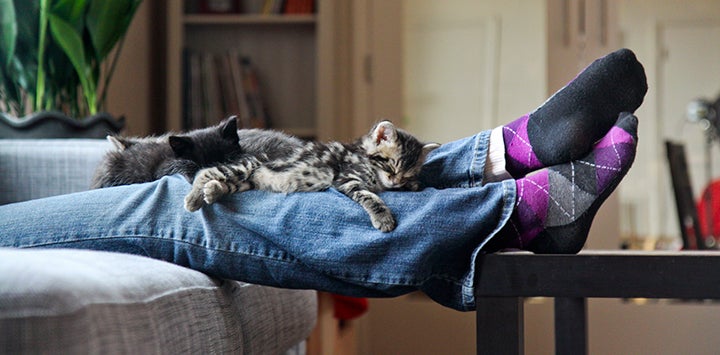
Cats and COVID-19
67% of U.S. households have pets. Common sense tells and veterinary epidemiologists agree, there is virtually no evidence that humans can transmit COVID-19 to their pets and no evidence that pets can transmit the disease to you.
A recent clinical study in China did show that cats who have been inoculated with huge viral loads of the virus can become ill and infect other cats, although even in that clinical setting scientists say the study results indicate that the virus is not highly transmissible in cats.
"The verdict is clear, cat owners should not be alarmed at this time. The clinical studies do not represent real life- and with the presumed millions of cases of COVID-19 across the globe, cats falling ill have been negligible," said Dr. Erin Katribe, medical director of Best Friends Animal Society. "Human-to-human transmission is still what needs to be the focus so that everyone, people and pets can stay safe."
The Centers for Disease Control recommends that people with COVID-19 limit contact with both human and pet when possible.
Specific recommendations from the CDC state that while a person infected with COVID-19 is symptomatic, they should:
- Maintain separation from household animals as they would with other household members
- Avoid direct contact with pets, including petting, snuggling, being kissed or licked, sleeping in the same location, and sharing food.
In accordance with the Americans with Disabilities Act, service animals should be permitted to remain with their handlers. If possible, a household member should be designated to care for pets in the home and should follow standard hand-washing practices before and after interacting with the household animal.
If a person with COVID-19 must care for pets, they should ensure they wash their hands before and after caring for pets.
"Still, if a person becomes sick and cannot limit interactions with their pet, their pet is, in the scheme of things, safest staying in the home under the care of their owner or other family member," Katribe said.